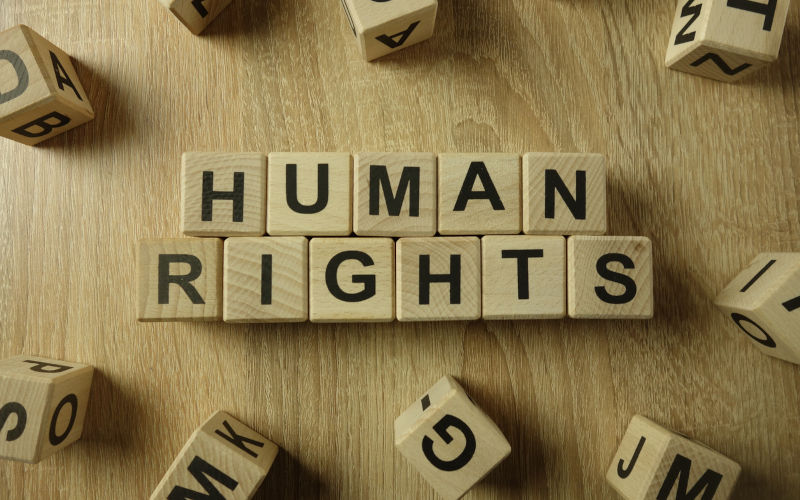Toothless tiger: Human Rights Committee sits helplessly on the sidelines
August 29, 2023
In 2009, after receiving a report from prominent Catholic priest Frank Brennan which recommended it, the Rudd Labor government abandoned the quest for a national human rights act. Instead it established a parliamentary human rights committee which came into operation in 2011. But, as one might expect, this committee was dead on arrival. It is a toothless tiger with no capacity to hold governments to account for human rights. It has sat helplessly on the sidelines while governments and parliaments have continued to undermine fundamental rights in this nation.
According to the Attorney-General Departments website this committee formally known as the Parliamentary Joint Committee on Human Rights and consisting of five members of the House of Representatives and five members of the Senate, is there to to scrutinise Bills and legislative instruments for compatibility with human rights. The committee is also able to inquire more thoroughly into Bills and legislative instruments when it considers this appropriate. This includes calling for submissions, holding public hearings and calling for witnesses. And the committee can review existing laws and conduct inquiries on human rights if the Attorney-General refers issues to it.
You can detect, just by reading this description of the work and powers of the committee that it may as well not exist. If executive government wishes to ignore it by passing laws that are incompatible with human rights it can do so. And government policies which so clearly ignore international human rights standards cannot be stopped by this committee.
Moreover what use is a parliamentary committee to an individual who is subject to human rights abuses? The committee, self-evidently, has no power to enforce rights.
Since 2011 there have been numerous examples of legislation and executive government policies which, if there were a human rights law in place, would have been subject to court challenge. The appalling mistreatment of asylum seekers by both the Labor and Coalition governments over many years is a case in point.
As Amnesty International and Human Rights Watch, among many other human rights groups, noted in 2016; By forcibly transferring refugees and people seeking asylum to Nauru, detaining them for prolonged periods in inhuman conditions, denying them appropriate medical care, and in other ways structuring its operations so that many experience a serious degradation of their mental health, the Australian government has violated the rights to be free from torture and other ill-treatment, and from arbitrary detention, as well as other fundamental protections.
At no stage has the parliamentary human rights committee had any capacity to hold government to account for the egregious breaches of international human rights laws committed in immigration detention centres in Australia, on Manus Island and Nauru.
And nor has the committee prevented legislation which offends human rights principles, such as that introduced by former Coalition AG George Brandis in 2014 which would see journalists and editors going to jail for publishing material about certain ASIO operations, from becoming law.
When former Labor Attorney-General Robert McClelland introduced, in 2011, the legislation establishing the parliamentary committee on human rights he was either hopelessly optimistic or deluded. According to McClelland the idea was that because legislation had to be accompanied by a statement of compatibility on human rights which the committee would scrutinise this will establish a dialogue between the executive and the parliament and inform parliamentary debate on human rights issues considered by the executive.
As constitutional scholar George Williams and Daniel Williams have written, the failure of the Rudd government to forge ahead with a human rights act but to instead establish a parliamentary committee means Australia has a unique set of national constitutional arrangements whereby Parliament is the only body capable of engaging in processes of rights protection that extend across the full ambit of human rights.
The courts, which are best placed to adjudicate on human rights matters because they are independent of executive government and the parliament, are sidelined in this model. And as a result Australians are left with some of the weakest human rights protections in the world.
The outlook for a national human rights act is bleak. The federal Attorney-General Mark Dreyfus has recently asked the parliamentary human rights committee to report to him by 2024 on Australias human rights framework but there is no mention by him of a human rights act. In fact Dreyfus seems to indicate that such a law is not on the agenda with his 22 March media release noting that [t]he Government believes that the enhancement of human rights should be done in a way that unites, rather than divides, our community. One assumes this means the Albanese government will not ensure Australians get the sort of protection citizens of other nations with human rights laws and charters such as Canada, New Zealand and EU nations enjoy.
Twelve months ago the parliamentary committee celebrated its first 10 years of operation. What a pity it was not winding itself up because Australias federal politicians had passed a human rights act.

